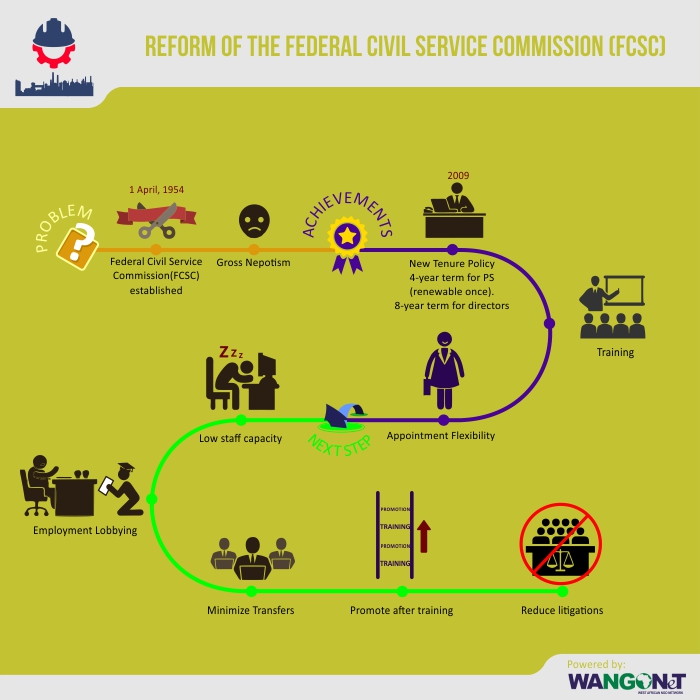Chapter 3
Reform of the Federal Civil Service Commission (FCSC)
Background
The Federal Civil Service Commission (FCSC), established through a provision under section 174 of the Nigerian Order-in-Council of 1954, and made responsible for the appointment, promotion and discipling of Nigerian civil servants in the 1999 constitution, degenerated during the military regimes of Nigeria. A 1988 Civil Service Reforms which stipulated Federal Character to be among the criteria for employment and which gave ministers greater responsibility in the appointment, promotion, training and disciplining of staff, has been identified among the factors responsible for the degeneration. It was alleged that appointments into some MDAs were for sale, that foreign and local training opportunities and promotion were sometimes extended only to those in the good books of their bosses, that a racket existed that required civil servants to exchange cash or sex for promotion. As such discipline was difficult to enforce within the civil service.
Past Reform and Achievements
Following the return to democratic governance in 1999, Government took concrete steps to reposition the Federal Civil Service into a competent, professional, development-oriented, public-spirited, and customer-friendly service capable of responding to the needs of the society. In August 2009, the FCSC initiated a new Tenure Policy that reinvigorated the civil service by creating vacancies and ensuring the promotion of qualified and deserving officers who would otherwise have stagnated. Induction courses were developed for all officers newly recruited into the civil service. The FCSC also began automating its core internal processes to reduce costs and allow seamless operations. It has so far employed about 200 physically challenged persons
Challenges and Next Steps
The slow process of automating all FCSC core internal process and building up of staff capacity to work in an automated environment should be quickened. FSCS should compel MDAs to promptly comply with guidelines on appointments, promotion and staff discipline. Promotions in the civil service should be based on the successful completion of mandatory training in the core skills required to function at the next grade level; with promotion exercises conducted only when vacancies are available to ensure that workers are promoted only with recently written promotion examinations. Transfer and secondment into the Federal Civil Service should be limited to critical areas of needs in order not to jeopardize the promotion prospects of serving officers.


